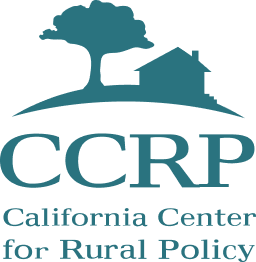Career Pathways: Fire, Forest, Fish & Facilities
Collaborative Regional Workforce Development
The Career Pathways project, proposed by the Rural Resilience Partnership (RRP), brings together ten organizations to create sustainable wage opportunities and promote environmental stewardship in the Redwood Region. The initiative focuses on workforce development, climate resilience, and cultural preservation by training workers for natural resource jobs in forestry, fire suppression, watershed restoration, and native plant restoration.
Accessible Training Through Community Hubs
By establishing cultural and training hubs across Lake, Mendocino, and Humboldt Counties, the project provides paid, accessible training close to home, minimizing barriers like travel and the need to sacrifice stable wages for training.
Comprehensive Certification and Job Placement
By October 2026, Career Pathways aims to launch a comprehensive workforce certification program with standardized curricula, clear career pathways, and employer partnerships for recruitment and job placement. The goal is to train 200 individuals and place 50 in living-wage jobs, focusing on underserved Native and remote rural communities.
Prioritizing Equity and Sustainability
The project prioritizes underserved communities, including youth, rural residents, low-income households, and Tribal citizens. Facility development integrates sustainable materials and designs, while distributed training centers reduce commuting emissions and costs. The initiative honors Native communities and fosters ecosystem restoration using fire for cultural and ecological health.
Connecting Local Mass Timber to Regional Housing and Building Needs
Advancing Mass Timber Manufacturing
Mad River Mass Timber (MRMT) proposes a pre-development project to address the Redwood Region's building and housing needs using locally sourced and manufactured mass timber. MRMT will be California's first mass timber manufacturer, leveraging sustainable forest management to produce low-carbon building materials for affordable, student, workforce, and rural housing, university expansions, and community infrastructure.
Community-Driven Housing Solutions
Partnering with the sustainable architecture firm atelierjones, MRMT will engage tribal and priority communities to identify housing needs and develop prefabricated timber kits for flexible, rapidly deployable housing solutions. They will also pursue pre-permitted design strategies to streamline regulatory approvals, reducing costs and wait times for local projects.
Regulatory Innovation
Specifically, Master Permitting strategies will be pursued with local County and City jurisdictions to try and ensure pre-permitted status of the designs, potentially available for a low-license fee, to reduce costs and time-to-permit for interested local parties.
Strategic Regional Development
This initiative looks to expand markets by connecting sustainable forest management with high-value markets to foster a regenerative timber economy, build capacity by strengthening local planning agencies' sustainable building knowledge and integrating expertise from designers, timber producers, and policymakers, and enhance resilience by creating skilled career paths, modernizing timber construction, and providing affordable housing solutions to improve community resilience in the rural region.
Developing a Climate Forward Workforce & Innovation Pipeline for Forest and Community Resilience
Integrated Approach to Regional Challenges
The Forest WRX Alliance proposal aims to enhance forest and community resilience in the Redwood Region by integrating workforce development, educational pathways, sustainable building solutions, and new funding streams. It includes four main components: Workforce Training Assessment & Dashboard Development, Climate Tech and Natural Resource Management Program, Mass Timber Manufacturing for Rural Housing, and Carbon Market Development.
Addressing Core Regional Needs
The project focuses on addressing regional challenges such as workforce shortages, limited infrastructure, and wildfire risks. By fostering partnerships with Tribal organizations, educational institutions, and industry partners, this project plans to create systemic change in how the region approaches forest management, workforce development, and sustainable building practices.
Measurable Success and Equity Focus
Success will be measured through workforce engagement, partnerships, and specific deliverables across all four main components, to be completed by September 2026. The proposal prioritizes equity by providing accessible training, integrating Traditional Ecological Knowledge (TEK), and creating pathways for economic opportunities, small business development, and sustainable housing solutions for underserved communities.
Economic and Climate Benefits
The project creates thriving-wage jobs by developing workforce training, career pathways in sustainable construction and mass timber manufacturing, new educational programs at Cal Poly Humboldt, while opening new markets through carbon credits and expanding rural job opportunities and advancement. This also helps with sustainable economic growth by combining Traditional Ecological Knowledge with modern forestry practices, supporting sustainable building markets, and establishing the region as a leader in climate technology.
Advancing Climate Goals and Inclusion
This project helps advance California's climate goals by reducing wildfire risk, supporting carbon sequestration in mass timber products that replace high-emission building materials, and integrating Traditional Ecological Knowledge with sustainable practices and innovative carbon market mechanisms. To support historically excluded communities, this project will provide stipends for Tribal and community participation in the planning processes, ensure there is representation in all processes, and provide targeted support for those in rural or remote areas.

